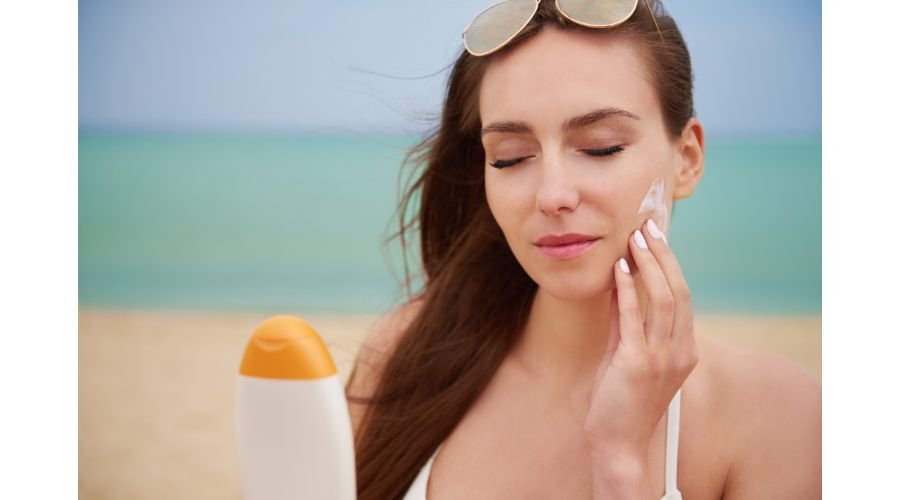Choosing the Best Sunscreen for Your Skin Type
Introduction to Sunscreen for Different Skin Types
Sunscreen is a crucial component of any skincare routine, but finding the right one can be challenging, especially when considering different skin types. Whether you have oily or dry skin, selecting the appropriate sunscreen is essential for protecting your skin from the sun’s harmful UV rays. Let’s explore how to choose the right sunscreen for both oily and dry skin types.
Understanding Oily and Dry Skin
Oily skin is characterized by excess sebum production, leading to a shiny complexion, enlarged pores, and a propensity for acne breakouts. On the other hand, dry skin often lacks sufficient moisture, resulting in tightness, flakiness, and a dull appearance. Understanding these differences is crucial when selecting sunscreen to ensure optimal protection and skincare benefits.
If you Dont Know about your Skin Type then Read this article How To Find Skin Type
Why Sunscreen is Important for Both Skin Types
Regardless of skin type, protecting the skin from UV damage is essential for maintaining its health and appearance. Sunscreen helps prevent sunburn, premature aging, and reduces the risk of skin cancer. However, individuals with oily and dry skin have unique needs when it comes to sunscreen formulations.
Features to Look for in Sunscreen for Oily and Dry Skin
When choosing sunscreen for oily skin, opt for non-comedogenic, oil-free formulas that won’t clog pores or exacerbate shine. Lightweight textures with a matte finish are ideal for oily skin types, providing protection without adding excess oiliness.
For dry skin, look for sunscreen formulations that offer hydration and moisture-locking properties. Ingredients like hyaluronic acid and glycerin can help replenish moisture levels, while creamy or emollient textures provide a nourishing barrier against environmental aggressors.
How to Choose the Right Sunscreen for Different Skin Types
When selecting sunscreen, consider factors such as SPF level, water resistance, and compatibility with your skin type. Both oily and dry skin types benefit from broad-spectrum sunscreens with an SPF of at least 30 to protect against UVA and UVB rays.
For oily skin, opt for water-resistant formulas that mattify the skin and control excess oil production. Look for ingredients like zinc oxide or titanium dioxide, which provide effective sun protection without clogging pores.
For dry skin, choose sunscreen formulations enriched with moisturizing ingredients such as shea butter, vitamin E, or niacinamide. These ingredients help nourish and hydrate the skin, preventing moisture loss and maintaining a healthy barrier against external factors.
Application Tips for Sunscreen on Different Skin Types
Proper application of sunscreen is essential for optimal protection and skincare benefits. Regardless of skin type, apply sunscreen generously to all exposed areas of skin, including the face, neck, and ears. Remember to reapply sunscreen every two hours, or more frequently if swimming or sweating.
For oily skin, start with a clean, oil-free base before applying sunscreen to ensure effective absorption and longevity. Consider using a mattifying primer or setting powder to control shine throughout the day.
For dry skin, apply sunscreen after moisturizing to lock in hydration and provide a smooth, supple base for makeup application. Choose sunscreen formulations that offer added nourishment and hydration for long-lasting comfort.
Common Mistakes to Avoid
One common mistake is neglecting sunscreen altogether, assuming that certain skin types are less susceptible to sun damage. However, both oily and dry skin types require protection from UV rays to maintain skin health and prevent premature aging.
Another mistake is using sunscreen with an insufficient SPF level or failing to reapply sunscreen regularly, compromising its effectiveness against UV exposure. Additionally, using sunscreen that doesn’t cater to your specific skin type can lead to discomfort, breakouts, or increased dryness.
Best Practices for Sun Protection
In addition to wearing sunscreen, incorporate other sun protection measures into your daily routine. Wear protective clothing, such as hats, sunglasses, and long sleeves, to shield your skin from direct sunlight. Seek shade during peak sun hours and avoid prolonged exposure to UV rays whenever possible.
For both oily and dry skin types, prioritize skincare products and makeup with built-in sun protection to supplement your sunscreen regimen. This ensures comprehensive sun protection and minimizes the risk of sunburn, premature aging, and skin cancer.
Conclusion
In conclusion, choosing the right sunscreen is essential for protecting your skin from the sun’s harmful UV rays, regardless of your skin type. By understanding the unique needs of oily and dry skin and selecting appropriate sunscreen formulations, you can ensure effective sun protection while maintaining healthy, radiant skin. Incorporate sunscreen into your daily skincare routine and follow best practices for sun protection to enjoy the benefits of healthy, glowing skin for years to come.
FAQ
- Can oily skin benefit from using sunscreen?
Yes, oily skin individuals still need sunscreen to protect their skin from the sun’s harmful rays and prevent premature aging.
- Will sunscreen make my oily skin worse?
Not necessarily. Look for oil-free and non-comedogenic formulas specifically designed for oily skin to avoid exacerbating shine or clogging pores.
- Can sunscreen hydrate dry skin?
Some sunscreen formulations are enriched with moisturizing ingredients that can help hydrate dry skin while providing sun protection. Look for ingredients like hyaluronic acid or glycerin for added hydration.
- How often should I reapply sunscreen on dry skin?
It’s recommended to reapply sunscreen every two hours, or more frequently if you’re sweating or swimming, to ensure continued protection, regardless of your skin type.
- Is it necessary to wear sunscreen indoors?
While direct sunlight exposure is minimal indoors, UV rays can still penetrate windows and cause skin damage. Therefore, it’s essential to wear sunscreen daily, even when indoors, to protect your skin from UV radiation.
Also read
- How To Find Skin Type
- Best Skin Care Routine For Men
- Also You Can read More about Sunscreen at Following Link

